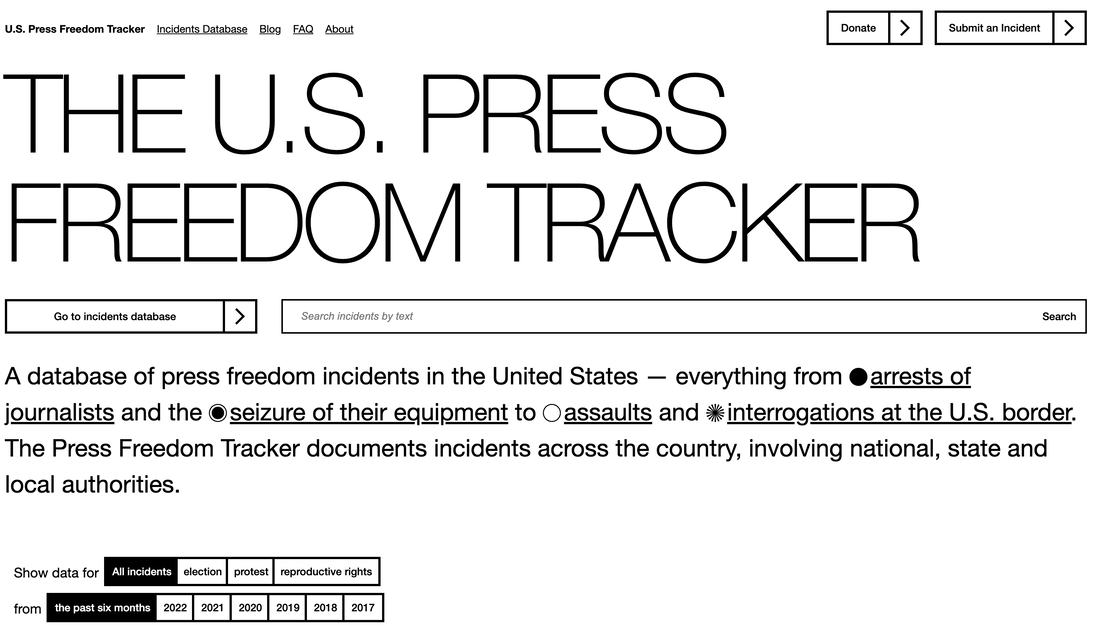|
The freedom of the press is a First Amendment right that protects the ability of every American to know what our government is doing in our name. Reporters expose much of what the powerful in government and in corporations would rather keep quiet, and in doing so, journalists face a variety of threats in the performance of their jobs: harassment, assault, improper legal action, and even death threats.
The Freedom of the Press Foundation has been monitoring and logging these dangers for several years now. They provide hard data on their U.S. Press Freedom Tracker, a database of incidents involving journalists in the United States. It is an indispensable tool for anyone who wants to preserve, protect, and enhance civil liberties by protecting a free and unencumbered press. The U.S. Press Freedom Tracker tracks the arrests of journalists, the seizure of their equipment, assaults, and interrogations at the U.S. border. It also tracks legal actions, such as subpoenas and prior restraint orders. The database extends back to 2017, grouping its data by well-defined categories. Altogether, the database offers a comprehensive understanding of the threats to press freedom at a glance. For example, one can see the explosion in assault incidents that coincided with the protests and riots of the summer of 2020. The tracker data are complemented by up-to-date reporting on these incidents. Among the events it tracks and reports on are legal actions that threaten to intimidate reporting. In October, for example, Ohio’s Scioto Valley Guardian Editor-in-Chief Derek Myers was charged with felony wiretapping for publishing a recording of witness testimony from an ongoing trial in Ohio. After judicial back-and-forth on whether to bar recordings of testimony in a murder trial, someone did just that. Myers was out of the country when he was provided a secret recording of the testimony taken by someone in the courtroom. Myers later published condensed portions of that recording. Judge Anthony Moraleja responded by issuing a search warrant for the Guardian equipment. A laptop was seized, along with Myers’ cellphone. Myers was then charged with interception of wire, electronic, or oral communications. Myers’ attorneys pointed to the Supreme Court case Bartnicki v. Vopper, which ruled that the media cannot be held liable for publishing information that was obtained illegally by a source. All this information was logged and reported by the U.S. Press Freedom Tracker, just one example of the rich resources civil liberties advocates can find here. Comments are closed.
|
Archives
June 2024
Categories
All
|
ABOUT |
ISSUES |
TAKE ACTION |



 RSS Feed
RSS Feed